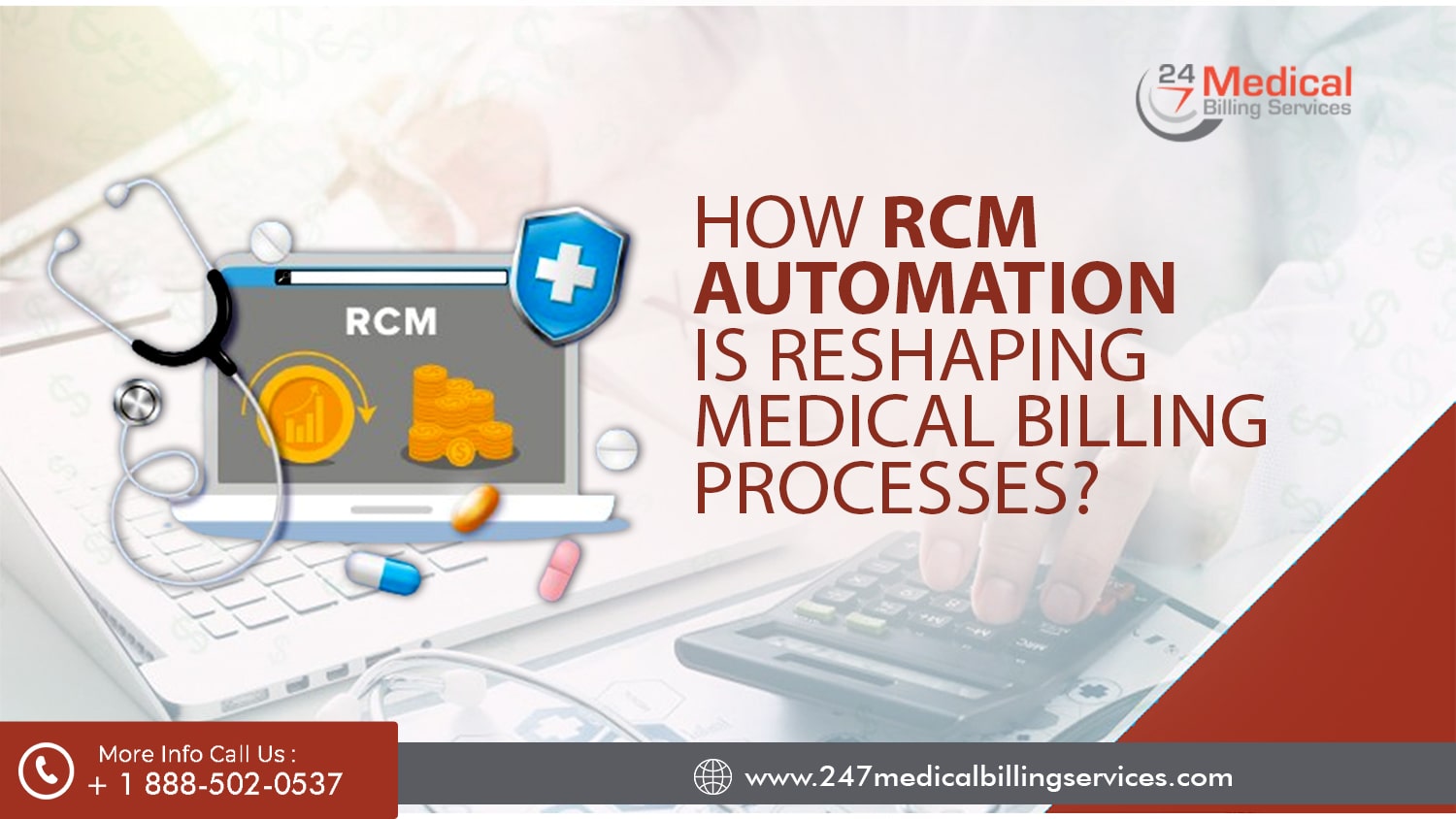
How RCM Automation is Reshaping Medical Billing Processes?
The healthcare landscape is undergoing a digital transformation, and medical billing is no exception. Traditional paper-based processes are becoming increasingly inefficient and error-prone, leading to delays in reimbursements, frustrated patients, and lost revenue for medical practices.
Fortunately, the rise of Revenue Cycle Management (RCM) automation is revolutionizing medical billing. By leveraging technologies like artificial intelligence (AI), machine learning (ML), and robotic process automation (RPA), RCM automation streamlines workflows, improves accuracy, and boosts overall efficiency.
The Challenges of Traditional Medical Billing
Before diving into the benefits of automation, let's revisit the inherent challenges in traditional medical billing:- Time-Consuming Processes: Manual data entry, coding, and claim submission are labor-intensive, taking valuable time away from core patient care activities. A study by the American Medical Association (AMA) found that administrative tasks, including billing and coding, consume a whopping 41% of a physician's time [1].
- Error-Prone: Manual processes are susceptible to human error, leading to denied claims and delayed reimbursements. A staggering 30% of claims are denied on the first submission, according to the AMA study [1].
- Inefficient Workflows: Traditional billing often involves siloed data and fragmented workflows, hindering communication and collaboration within medical practices.
- Poor Patient Experience: Complex billing processes can lead to confusion and frustration for patients, negatively impacting their overall healthcare experience.
How RCM Automation Benefits Medical Billing
RCM automation tackles these challenges head-on, delivering a multitude of benefits for both medical practices and patients.Increased Efficiency and Productivity
- Automated Workflows: Repetitive tasks like data entry, coding, and claim scrubbing can be automated, freeing up staff time for more critical tasks like patient care.
- Real-Time Data Access: Automated systems provide instant access to patient data, allowing for faster and more informed decision-making.
- 24/7 Medical Billing Services Support: RPA bots can work tirelessly, ensuring uninterrupted billing processes even outside regular business hours. This is particularly valuable for practices that partner with 24/7 medical billing services for after-hours claims submission and support.
Enhanced Accuracy and Reduced Errors
- Automated Data Entry and Coding: Automating data entry and coding minimizes the risk of human error, leading to cleaner claims and fewer denials.
- Real-Time Eligibility Verification: Automated eligibility checks ensure services are billed accurately to the correct insurance provider, avoiding unnecessary delays and denials.
Increased Revenue and Improved Cash Flow
- Faster Claims Processing: Automation streamlines claims submission and follow-up, leading to faster processing times and quicker reimbursements.
- Reduced Claim Denials: Fewer errors translate to fewer denied claims, minimizing revenue losses.
- Improved Patient Collections: Automated patient billing reminders and self-service portals can improve patient collections and reduce outstanding accounts receivable.
How RCM Automation Works in Practice
RCM automation utilizes various technologies to transform medical billing:- Robotic Process Automation (RPA): RPA bots mimic human actions, automating repetitive tasks like data entry, claim submission, and payment posting.
- Artificial Intelligence (AI): AI algorithms analyze vast amounts of data to identify coding errors, predict claim denials, and even automate medical coding tasks.
- Machine Learning (ML): ML algorithms learn from historical data to continuously improve automation processes and identify new opportunities for efficiency gains.
- Eligibility Verification: Automating eligibility checks with insurance providers ensures patients are covered for services before they are rendered, preventing wasted time and unnecessary billing disputes.
- Medical Coding: AI-powered coding software can analyze medical records and assign the correct codes for billing, improving accuracy and reducing the risk of errors.
- Claim Submission and Follow-Up: Automated systems can submit claims electronically and follow up on denials or payment delays, saving staff time and ensuring timely reimbursements.
- Patient Payment Processing: Online payment portals and automated reminders simplify the payment process for patients and improve collection rates.
The Future of RCM Automation
The future of RCM automation is bright, with new technologies and applications emerging constantly. Here are some trends to watch:- Chatbots for Patient Communication: Chatbots can answer basic patient billing questions, provide real-time status updates on claims, and facilitate online payments.
- AI-powered Coding Assistants: AI will continue to improve medical coding accuracy and efficiency, freeing up coders to focus on complex cases.
- Advanced Analytics for Revenue Cycle Management: Advanced analytics will provide deeper insights into billing processes, allowing practices to identify areas for improvement and optimize revenue collection strategies.
Partnering with a Reliable RCM Automation Provider
Collaborating with a reputable RCM automation provider like 24/7 Medical Billing Services will help you overcome the first obstacles and get the full benefits of RCM automation. Our expertise in RCM automation ensures they stay up-to-date on the latest technologies and can guide practices through the selection and implementation process. We can also provide scalable solutions tailored to the specific needs and size of medical practice, all while prioritizing data security and adhering to HIPAA compliance regulations.See also: Optimizing Your Revenue Cycle: Best Practices In Outsourcing RCM


.png)
